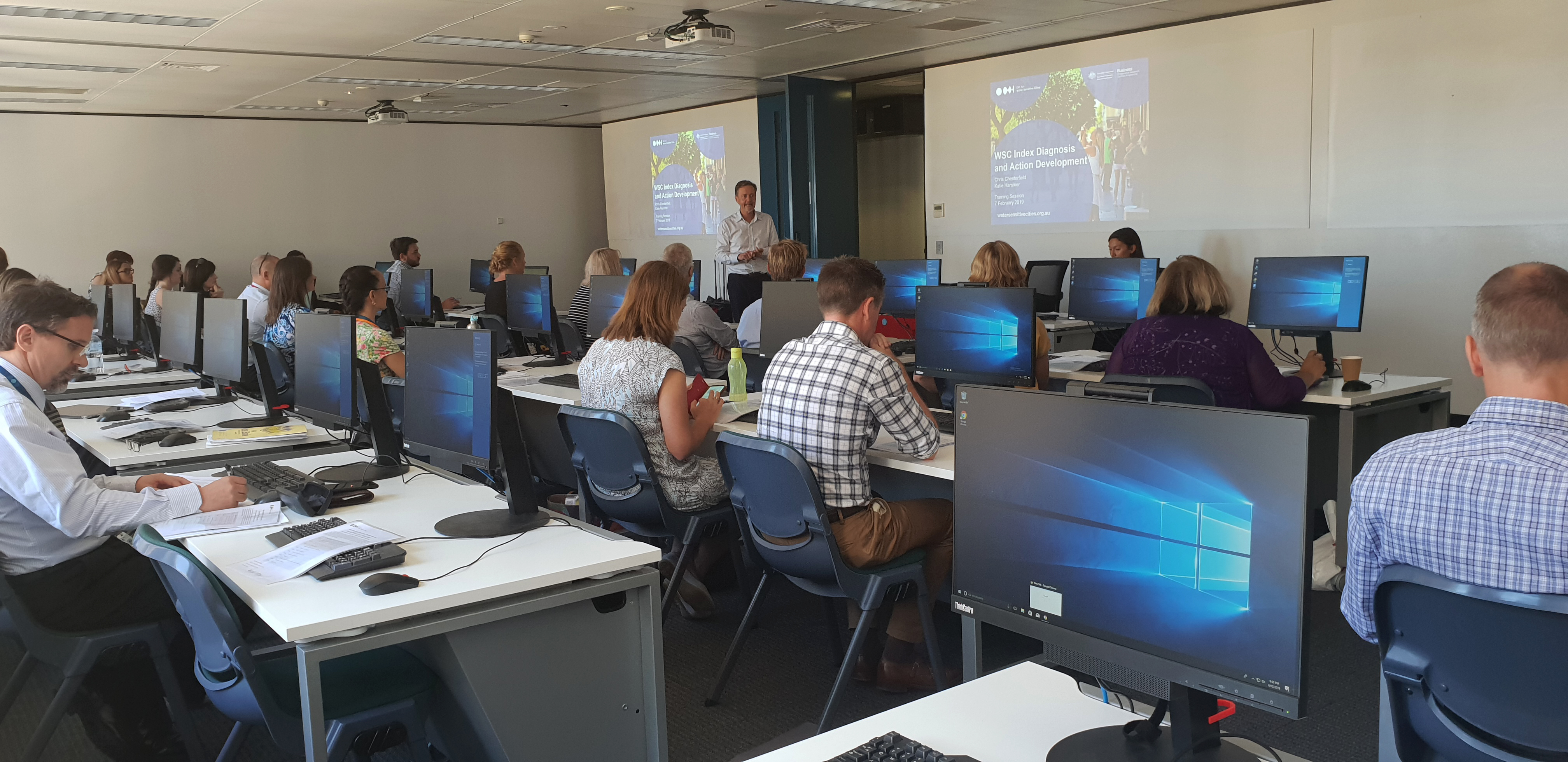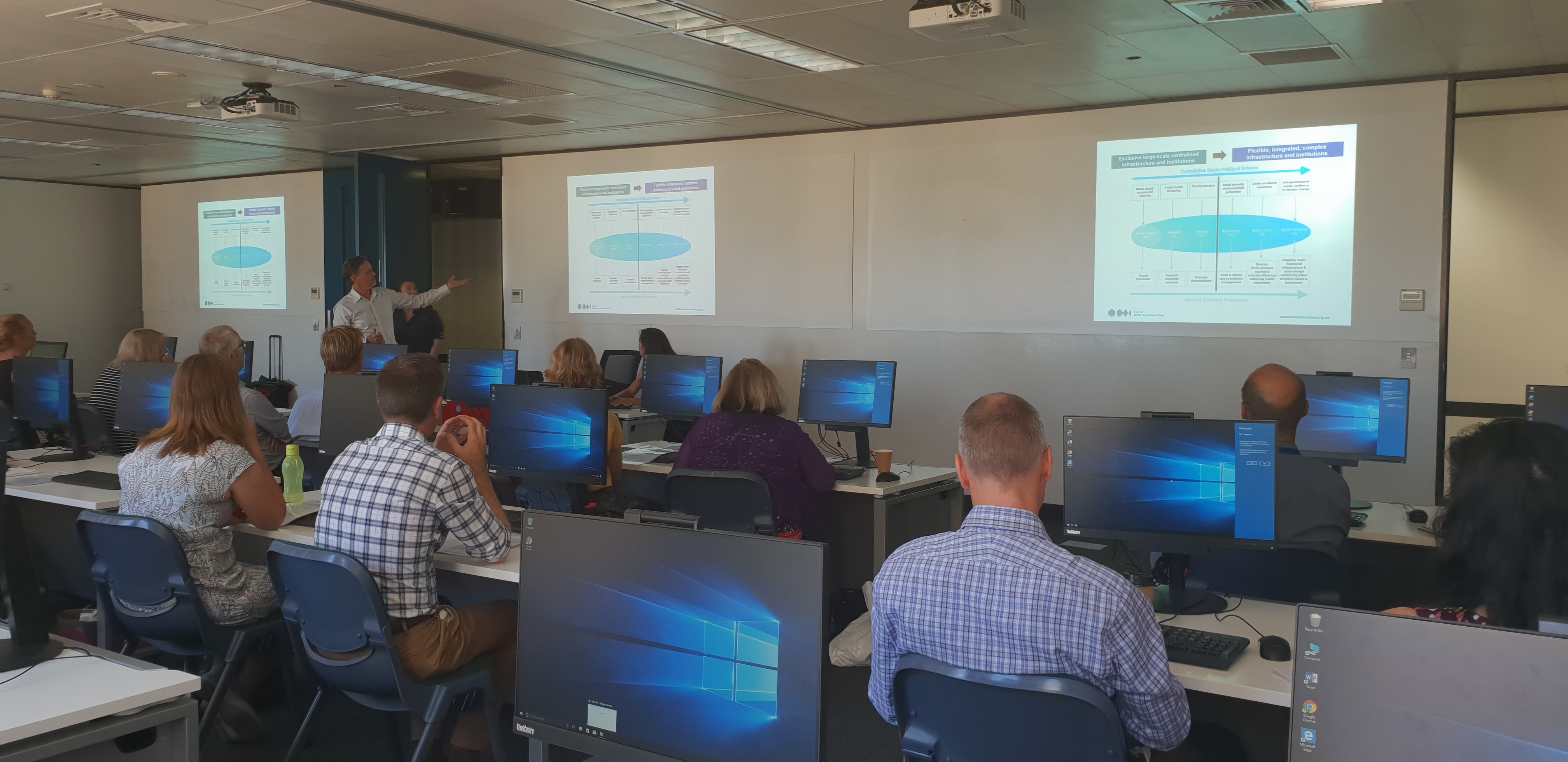Using the Water Sensitive Cities Index online platform to achieve waterwise goals

A growing number of water practitioners in Western Australia are going through the Water Sensitive Cities (WSC) Index benchmarking process, as part of WA Water Corporation’s Waterwise Councils Program. (WA Water Corporation uses ‘waterwise city’ to communicate the water sensitive city concept to the community.)
But, getting the benchmarking results is just the beginning. What do water practitioners do once they have their benchmark? And how do they foster the collaboration needed to implement waterwise actions?
To answer these questions, WA Water Corporation hosted a seminar and training workshop held in early February. Chris Chesterfield (our Director of Strategic Engagement) and Katie Hammer (our Project Manager for Integrated Research Project 1) started the day with a seminar about the WSC Index, for practitioners who were unfamiliar with it. This one-hour seminar, which attracted 115 people, summarised the index’s main features and its application. To date, the index has been applied 25 times in Australia, and four times internationally.
‘It’s fantastic to see so much interest in waterwise cities’, said Ashley Vincent (General Manager, Assets Planning Group, WA Water Corporation). ‘We can only achieve our vision for Perth as a leading waterwise city if we all work together.’

At the workshop that followed, the 32 attendees learned how to analyse local WSC Index results, and then use the WSC Index online platform to set actions to achieve their goals. Attendees included representatives from WA Water Corporation, local government, state government, the community sector and the private sector.
They learnt how to use the WSC Index online platform to set targets, develop actions and use this to simulate how the actions would affect the overall WSC Index score and progress towards a five-year target. A key benefit of the benchmarking and action setting process is also fostering collaboration among the many stakeholders that must work together to achieve a waterwise city. This collaboration must occur within organisations, as well as between organisations.
The session was a great success, with 90% of attendees highly satisfied, and reporting that the online platform would help them implement action plans.
‘This is the first time we’ve conducted a training session on how to use the WSC Index online platform to set actions’, said Chris Chesterfield. ‘The online platform supports practitioners working together to select priority actions, and then predict, and track progress. We are seeing growing demand for this function, as more cities apply the Index.’